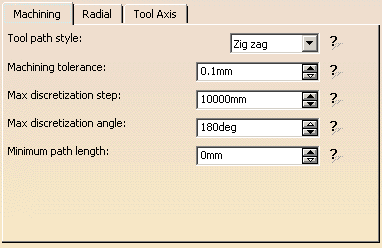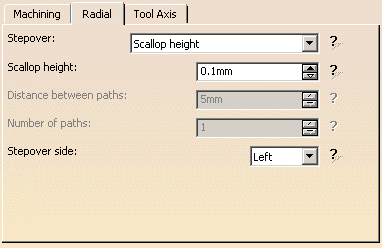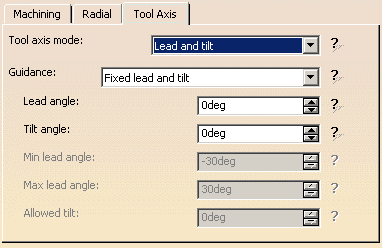To create the operation you must define:
- the geometry to be machined

- the tool that will be used

- the parameters of the machining strategy
 with the tool
axis guided in Lead and Tilt mode
with the tool
axis guided in Lead and Tilt mode - the feedrates and spindle speeds

- the macros (transition paths)
 .
.
More information can be found in Selecting Geometry.
then select Machining > Advanced Machining from the Start menu.
Make the Manufacturing Program current in the specification tree.
-
Select the Multi-Axis Sweeping icon
 .
.
A Multi-Axis Sweeping entity along with a default tool is added to the program.
The Multi-Axis Sweeping dialog box appears directly at the Geometry tab page .
.
This tab page includes a sensitive icon to help you specify the geometry to be machined.
The part surface of the icon is colored red indicating that this geometry is required.
All other geometry is optional.
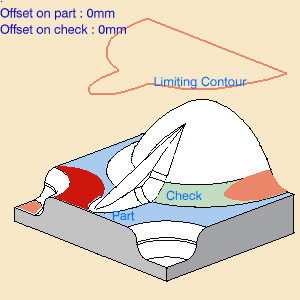
-
Select the Select faces item in the contextual menu of Part in the icon
then select the desired face in the 3D window.
The part surface of the icon is now colored green indicating that this geometry is now defined. -
Click the orange check surface in the icon
then select the desired check element in the 3D window. -
Double click Offset on Check in the icon.
Set this value to 5mm in the Edit Parameter dialog box and click OK. -
Select the Strategy tab page
 to specify
parameters for:
to specify
parameters for: -
Click the View Direction arrow (V) and set this direction to (0, -1, 0)
-
Click the Start Direction arrow (S) and set this direction to (1, 0,0) in the dialog box that appears.
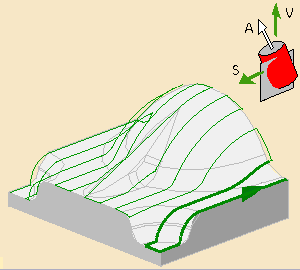
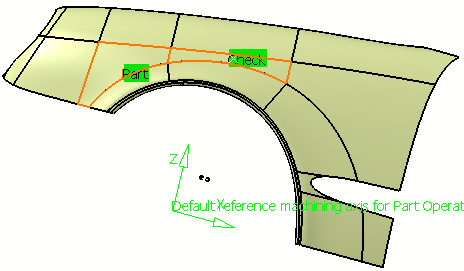
If the proposed tool is not suitable, just select the Tool tab page
Please refer to Edit the Tool of an Operation.
-
Select the Feeds and Speeds tab page
 to
specify the feedrates and spindle speeds
for the operation.
to
specify the feedrates and spindle speeds
for the operation. -
Select the Macros tab page
 to specify the
operation's transition paths (approach and retract motion, for example).
to specify the
operation's transition paths (approach and retract motion, for example).
See Define Macros of an Operation for an example of specifying transition paths on a multi-axis machining operation.
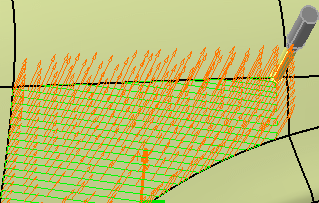
-
Click OK to create the operation.
![]()
